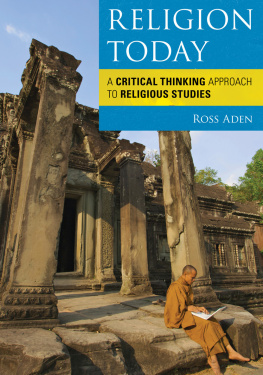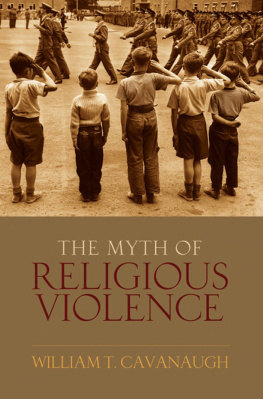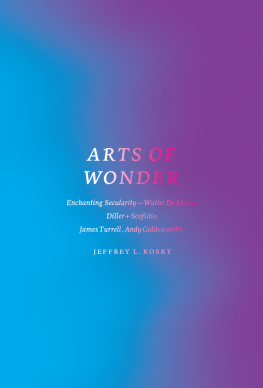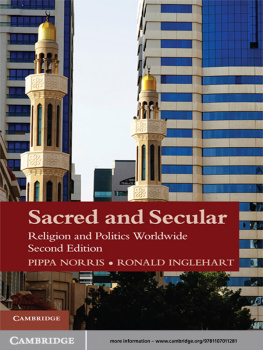SOMETHING OLD, SOMETHING NEW

Oxford University Press is a department of the University of Oxford. It furthers the Universitys objective of excellence in research, scholarship, and education by publishing worldwide. Oxford is a registered trade mark of Oxford University Press in the UK and certain other countries.
Published in the United States of America by Oxford University Press
198 Madison Avenue, New York, NY 10016, United States of America.
Oxford University Press 2018
All rights reserved. No part of this publication may be reproduced, stored in a retrieval system, or transmitted, in any form or by any means, without the prior permission in writing of Oxford University Press, or as expressly permitted by law, by license, or under terms agreed with the appropriate reproduction rights organization. Inquiries concerning reproduction outside the scope of the above should be sent to the Rights Department, Oxford University Press, at the address above.
You must not circulate this work in any other form and you must impose this same condition on any acquirer.
CIP data is on file at the Library of Congress
ISBN 9780190864170
eISBN 9780190864194
For Marnie, now and forever
CONTENTS
This will be an untraditional preface. More a postscript than a preface, and in some sense supererogatory, it is certainly not something I had planned to include as part of the book. I decided, however, that under the circumstances I could not keep it out.
As I was writing Something Old, Something New: Contemporary Entanglements of Religion and Secularity, my own life became entangled with its subject matter in a startling way. I had drafted most of the chapter on Psychedelic Last Ritesthe books final chapter as things now stand, but chronologically the third piece I undertook. This chapter compares the traditional Catholic sacrament of extreme unction with recent experiments in which scientists give psychedelic drugs to terminal cancer patients. In both the old sacrament and the new experiments, the goal is to help dying people find peace as they manage their last days. By fortifying souls, or reorienting consciousness, priests and psychiatrists hope to alleviate depression by giving the dying a fresh perspective on life, death, and the universe.
Literally middraftsitting at a table in the university library, composing my analysis of the most recent clinical trialsI received a call from my doctor: much to his surprise, he said, a biopsy revealed that I have metastatic cancer of an incurable sort. Treatments might stall the cancers progress for a while, but my diagnosis was unmistakably terminal.
The synchronicity of the moment struck with such force that it felt surreal. After a few days of numbness and disorientation, I decided that fate had presented me with an unusual challenge. I had joined the ranks of dying penitents and clinical subjects; I was no longer safely outside the experience I was writing about. Could this piece of writing I had drafted do me any good, as I stood at the cosmic threshold that only a few days before had seemed a benign abstraction?
My chapter compared two more or less sacramental means of sorting things out. If I had wanted to try either one, this would have proved difficult. I did not have the faith required for extreme unction. I was raised Catholic by my mother, but switched over to my fathers atheism during my teens; in my more mature reflective life, I have found myself attracted to (and repelled by) elements of both. I probably would have qualified for a psychedelic experiment, but those trials had closed to volunteers, and besides, I did not feel as if I needed a latter-day entheogenic boost. I had already undertaken my psychedelic trials in college adventures with LSD and other drugs of that sort. There were no psychiatrists to guide the tripsthis was strictly do-it-yourselfbut my memories of those experiences remain among my most vivid. As I tapped back into them, and compared my memories with the reports of subjects who took LSD or psilocybin in clinical settings, I found that my psychedelic experience proved very helpful as existential fortification.
I would prefer not to go into detail about my do-it-yourself psychedelic therapy: partly to keep from straying too far off course, partly because psychedelic profundities never translate very well onto the page. I will just say that my memories of psychedelic consciousness contributed substantially to equanimity in the face of death. Other things mattered even more, at least for me; and I am not confident that either psychedelic therapy or Catholic last rites will sufficiently fortify spirits in the absence of loving family and friends.
After my diagnosis, I wrote and revised this book with a greater sense of urgency. The last chapter obviously mattered in a new way. Writing the chapter on deadly sins, I found unexpected relevance in the sin of sloth. The darkest form of sloth, acedia, poses an insidious threat to the terminally ill. I also found myself newly sensitized to pride, the best camouflaged of the deadly sins. I have no doubt that pride contributes in its usual secret ways to anxiety about death. I read back through The Rhetoric of New Atheism to make sure I was satisfied with its approach to why the world exists. This is a question that has always intrigued me, and now it seemed especially important to have the best available bottom-line conceptsnot only to pass along good information, but as part of my existential fortification. As I drafted The Rhetoric of Faithful Science, my new situation catalyzed doubts about certain elements of the scientists apologetics, most notably in the matter of cancerous glitches in Gods language of DNA. I also took special interest in tracking down the religious positions of Einstein and Spinoza, his spiritual mentor. The more I looked into their reflections, the more I found that their hard-to-label beliefs best coincided with my own. I have never been comfortable calling myself a theist, an atheist, or an agnostic. Pressed for a label, as I might be over these last however many months, I will say, Im a Spinozist. A Romantic Spinozist.
I am more than ready to bring this preface to a close and let the book speak for itself. I hope that it will turn out to be as thought-provoking for otherswhatever their beliefs, however they manage their entanglements of religion and secularityas it has been for me.
I am grateful to many students and colleagues over the last few years who have helped me shape the ideas in this book. In particular, I would like to thank Jeffrey Kenney, who generously shared his expertise in matters of religious studies; Keith Nightenhelser, classicist and polymath, who offered suggestions about a number of subjects; and Michael Sinowitz, equal parts skeptic and enthusiast, who inspired this project more than he probably realizes with good wine and conversation. DePauw University granted a sabbatical leave that gave me the time and resources to write.
I was fortunate to have the support of Cynthia Read of Oxford University Press, who led the way in bringing this project to fruition. Suggestions offered by readers in the review process helped me clarify and augment some theoretical elements.
I thank my doctors at Indiana University Health, for obvious and not-so-obvious reasons: some of them seemed genuinely interested in what I was writing, and no doubt kept other patients waiting as we discussed this or that chapter.
And as I imply in the preface, I could not have managed this part of my life without the love that flowed, every day, from Annie, Meg, and Marnie. I will not even attempt to express how much they mean to me, and how lucky I feel when I am around them.

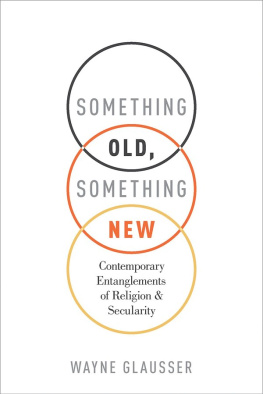

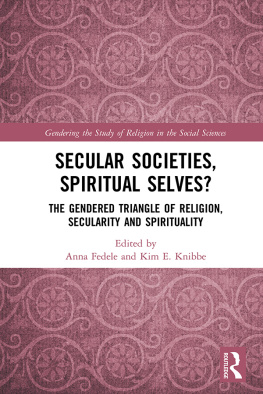
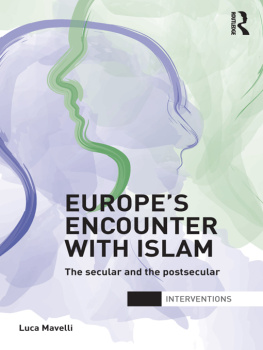
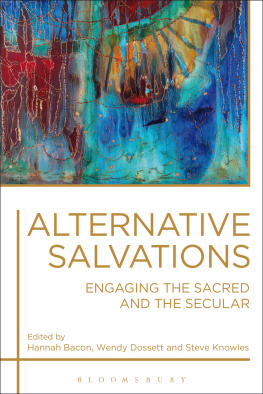
![Blackford - Freedom of religion [and] the secular state](/uploads/posts/book/167779/thumbs/blackford-freedom-of-religion-and-the-secular.jpg)
